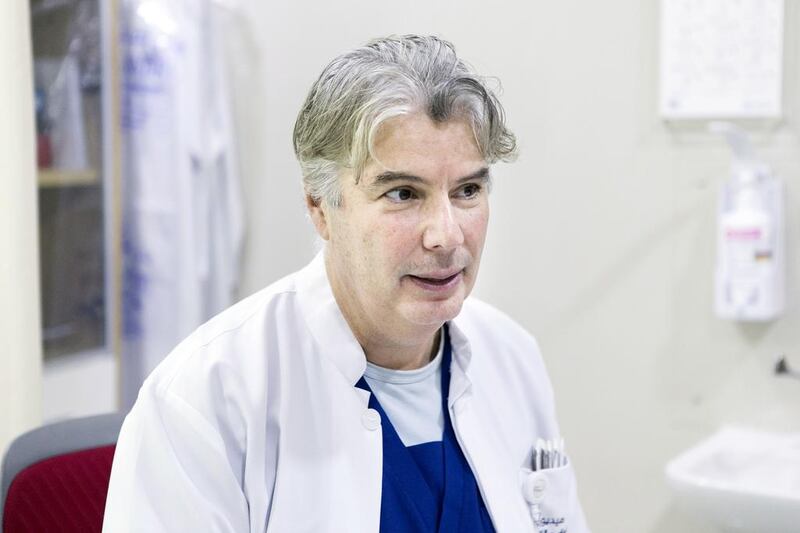DUBAI // As the summer heat intensifies, doctors repeated warnings about the potentially fatal consequences of leaving children unattended in cars, even for a few minutes.
Despite regular advice from Dubai Health Authority, children continue to be left alone in hot cars, with Dubai Police reporting more than 42 cases so far this year.
Extreme heat can have a devastating effect on a child, because they are unable to sweat or cool down as efficiently as do adults, so suffer more from the consequences.
Dr Sara Kazim, a consultant emergency physician at Rashid Hospital, said children suffering from the effects of heatstroke are usually taken to specialist paediatric wards at Dubai Hospital or Latifa Hospital.
“It can be damaging to children in just a few minutes,” she said. “A child’s illness can quickly escalate from mild to severe within 10 minutes if they are very young. Older children will lose consciousness after 15 to 20 minutes.
“Children have a smaller body surface area than adults, so have a greater ability to accumulate heat. Their heat-adjustment mechanisms are not as well adjusted as adults, so they don’t sweat as much.”
Underdeveloped thermoregulatory systems leave children vulnerable to the effects of extreme heat, which intensifies in cars because of the greenhouse effect.
A car’s interior will absorb heat from the Sun but when that heat is released a certain amount is reflected back into the vehicle by the windows, increasing the temperature inside within only a few minutes.
“Parents often underestimate how long they are leaving their children, even if they are just popping into the pharmacy,” Dr Kazim said.
“A few minutes can be lethal for a kid. It can be easy to forget or lose track of time when people are leading such busy lives.
“It is a good idea to leave clues, like a handbag next to a child seat, so a mum must see the kid when she reaches for her bag.
“The risk is much greater at this time of year, and we have already seen some worrying cases, where the police have been called.”
The National Centre for Meteorology and Seismology expects temperatures to reach between 45°C and 49°C this week, with humidity levels reaching a maximum of 90 per cent in interior areas and 95 per cent along the coast.
Doctors are warning everyone to guard against heatstroke.
“Heat exhaustion is defined by symptoms including thirst, fatigue, headache and twitching. If the case worsens, they can get heatstroke – a fever of 40°C and higher, headache, rapid breathing, altered mental behaviour and, ultimately, fainting,” said Dr Fadi Moborrak, at Dubai Hospital’s emergency department.
In general, if children are playing outside they should be in shaded areas, at cooler times of the day, before 9am or after 6pm. They are advised to wear light clothing and a hat and, if it is extremely hot, then children should avoid playing outside altogether.
Last year, Dubai Police reported finding 119 children locked in cars, and 130 in 2014. The new Child Rights Law will help to enforce rules because it puts more focus on neglect as a serious offence.
Dr Mohammad Rashid, a specialist paediatrician at Medeor 24x7 Hospital, Dubai, hosts a health clinic for parents and was shocked by some of the stories he heard.
“Some parents are going to the store and leaving their children in their car for just a few minutes – it is very dangerous,” he said. “One woman from my paediatric clinic in Dubai left her child alone for just a moment and the child managed to lock himself in. The police had to be called to get him out, but he was trapped inside for about 45 minutes.”
During summer months, children can dehydrate quickly, so it is important to give them regular fluids and ensure they are drinking enough water.
“It is not just about heat but also the psychological trauma. It is like a prison,” Dr Rashid said.
nwebster@thenational.ae







